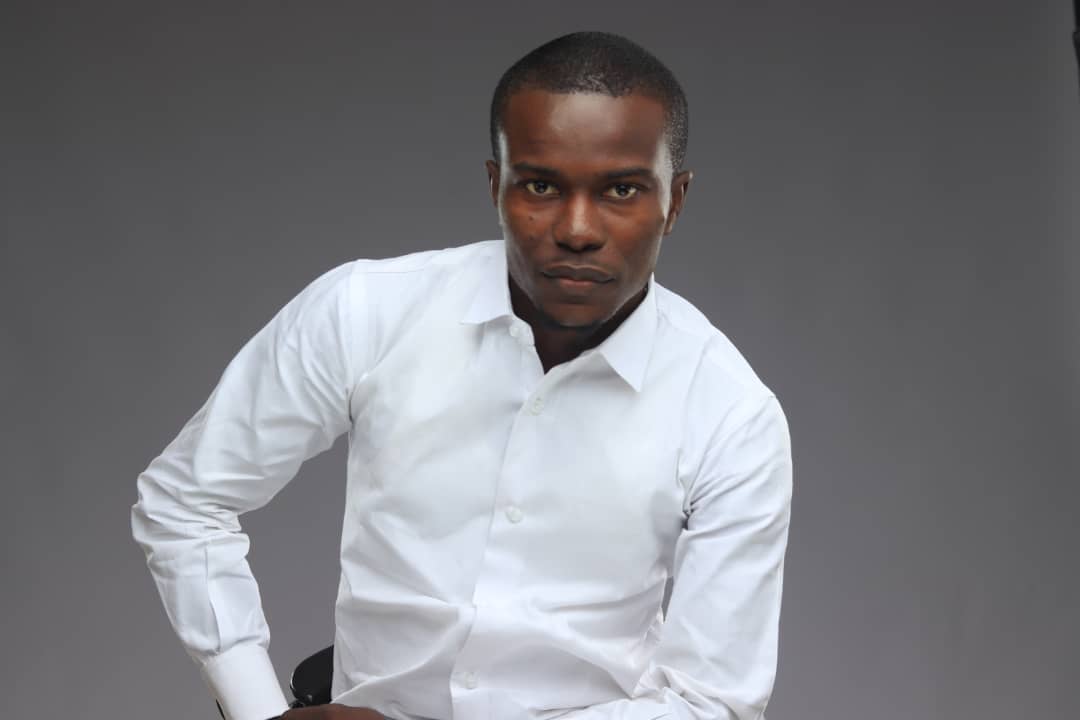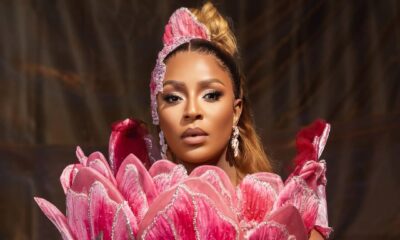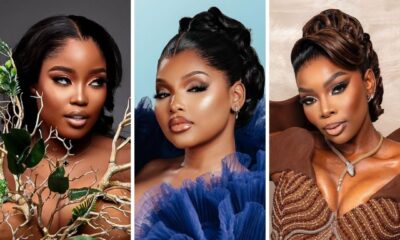Features
Mfonobong Inyang: Chidimma Adetshina – The Lingering Impact of Colonial Mentality in Africa
As an African, it doesn’t matter whether you’re light, dark, faux, real, rich, poor, house or field – you’re still African.

Tough conversations on critical issues should be had, especially when any handshake goes beyond the elbow. The disgraceful outrage against Chidinma Adetshina at the Miss South Africa pageant underscores how low we have descended as a continent. The idea that a person qualified for a competition but shouldn’t participate in it owing to unfounded primal sentiments is appalling. However, it speaks to a larger malaise; our ancestors may have left the plantations but some of us as descendants are nostalgic about picking cotton. Picking on ourselves changes nothing – only true freedom changes everything.
We Were Africans Before The White Man Came
The first thing a coloniser does is to launch a scathing yet systematic assault on the identity of the conquered people. They change your nomenclature and culture and over time, you eventually hate your own origins. Colonisers rewrite your history in a way that disempowers you but more importantly, gives them an ideological superiority. It was simply the playbook of imperialists – the Persian, Roman or Babylonian Empire and others. Immediately after they were taken as slaves, Nebuchadnezzar changed the names of Hananiah, Mishael and Azariah to Shadrach, Meshach and Abednego respectively. They were forbidden from worshipping their own God and doing anything that reminded them of the culture of their homeland. After a while, colonised people feel inferior until they identify with the culture of their colonisers. Some people cannot wear an outfit made in their own country, even when they produce the best shoes – they put a label that says it was made in a foreign country.
As children, we were told that speaking our native language made us local and in school, it was referred to as vernacular. When somebody asked for my English name; I wondered if he had ever asked Tom Cruise what his Ibibio name was. If the world doesn’t have a problem pronouncing Volodymyr Oleksandrovych Zelenskyy then pronouncing Mfonobong Inyang shouldn’t be a problem. When you go to a high-end restaurant in Paris for a three-course meal and you are served the pièce de résistance – you don’t ask them to interpret, instead you respond to the culinary prowess of the chef with “je ne sais quoi!” Yet when the same people come back home, they start replacing suya with kebab, suddenly akara becomes bean cake and even garri wey we dey use see front is christened as cassava flakes. I once saw on Obasanjo’s internet how someone put on a ring light and said that eating fufu with bare hands is razz. Somehow in our minds, some of us have been convinced that local means inferior – when in reality, what we refer to as foreign is another country’s local. The difference between Sango and Thor is PR.
Her Story
History is something that reminds you of your heritage and can empower you for your future if properly told. It’s wild that xenophobia seems to have become mainstream in South Africa; Nigerians have particularly felt the brunt of this untoward sentiment – it’s a shame considering the history between the two countries. Nigeria’s role in bringing an end to apartheid is well-documented; we spent a whopping $61 billion in military and economic aid alone. The roles of Sir Alhaji Abubakar Tafewa Balewa and Chief Olusegun Obasanjo are not in doubt, the great Madiba found refuge in Nigeria when he was headhunted back home. Is this what Nelson Mandela spent 27 years of his life as a political prisoner at Robben Island for? I am sure he would be turning in his grave right now. Beyond state power, Nigerian citizens deployed their soft power as a tool for advocacy: Veteran musician of blessed memory, Sonny Okosun, recorded a hit song, “Fire In Soweto”, to commemorate the fight against apartheid. Nigerian students skipped lunch and civil servants gave up 2% of their salary for what was then known as the “Mandela Tax”. Is this generational amnesia or something else we don’t know? Hiabo!
To my Mzansi friends, Nigerians are not your enemies. We were also colonised but playing the victim isn’t the best way to navigate the future. In our DNA, we’re go-getters, we can be very bold in our endeavours. Trying to stereotype Nigerians as the cause of your woes is lame; you cannot paint a whole country with the same brush – it’s people who do good or bad things, not their races. Just like I said when some people elevated bigotry to state policy during the elections last year in Nigeria: I haven’t seen a city, state or country in the world that is doing major economic numbers without the contribution of other nationalities; it’s called foreign direct investment for a reason – very smart people know that it’s always a net positive to have an influx of talented people.
Charity Must Start At Home
There is a phenomenon across Africa that is textbook hypocrisy; we blatantly ignore the plank in our eyes and instead call out the spec in our brother’s eyes. In South Africa where xenophobia has unfortunately become a staple, they are filing a case at the ICC against another country for a conflict in the Middle East. In Kenya, citizens were clamped down on by the police for disagreeing with a finance bill, yet they have sent a contingent of policemen to curb gang violence in Haiti. In Nigeria we’re outchea begging Niger, Burkina Faso and Mali to return to ECOWAS for the sake of democracy but in the same breath proposed a bill that effectively would proscribe protests and criminalise free speech. In what universe does that make any sense?
Where is the outrage for the forced child labour in Congo where they are being used to exploit copper and cobalt? Where is the outrage for over 600,000 people who died in the Tigray War? Yet we have heard more condemnation of the war in Eastern Europe from the same African leaders. In Nigeria, farmers cannot safely cultivate their farmlands owing to terrorism and this has led to massive food insecurity and food inflation, yet our leaders are the loudest voices for esoteric agendas that don’t move the needle in the country. I have nothing against extending our voices to far-flung causes but the performative activism just reeks of double standards. African lives are not more dispensable than others.
Diaspora FC
Nigeria’s foreign policy has been a mess for obvious reasons; aside from the stark incompetence – it doesn’t help that the lack of domestic political capital makes it harder to stamp our authority on the continent. We leave our diaspora community out to dry – an unfortunate treatment of people who send in north of $20 billion back home annually. I’m yet to see a strong consular concierge over certain actions where our citizens have been unfairly treated, there’s little or no leverage of soft power or other tools of diplomacy. This is why last year, young Nigerians gravitated around a presidential candidate who respected Nigerians in the diaspora enough to engage them even though they weren’t even eligible to vote – another travesty. Great to see the two leading candidates in the Edo gubernatorial elections following that path, it’s the way to go. We cannot covet black tax and remittances from abroad but when it comes to representation, we become Avatar Aang – when the world needed him the most, he vanished.
Ubuntu: You Can Banku On It
One thing I love is the vibes Nigerians and Ghanaians share, it’s just like siblings’ rivalry – it’s nothing deep. One minute we are throwing banter at each other over Jollof, next thing Nigerians are rooting for Thomas Partey to recover from his injuries at Arsenal even though his goal cost us participation at the last World Cup. You don’t see Nigerians frothing in the mouth or threatening that rap god, Sarkodie, is stealing our thunder on the hip-hop charts. When Moses married Maria, didn’t you see how we showed up and showed up in Accra? We even taunted Ghanaians for not turning up to the max when they wanted to close the wedding party earlier than we would in Nigeria.
Today we have a strong Anglophone/Francophone dichotomy that stifles progress – it’s the same divide-and-conquer strategy that has kept Africa where we are. Why is it that it’s easier to travel and transport goods across the Atlantic than it is to do the same within the borders of Africa? Hating on ourselves doesn’t necessarily translate to being loved by people with a different skin tone. As an African, it doesn’t matter whether you’re light, dark, faux, real, rich, poor, house or field – you’re still African.





















